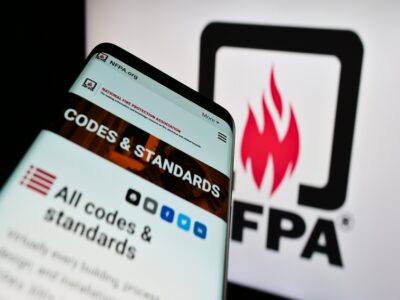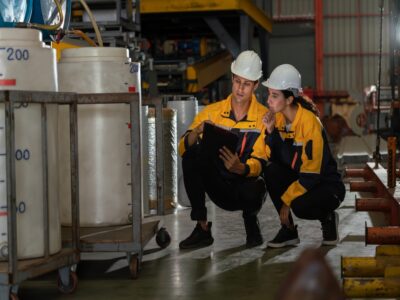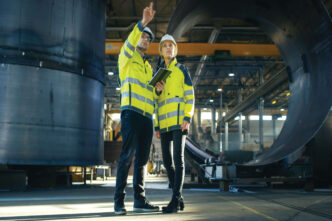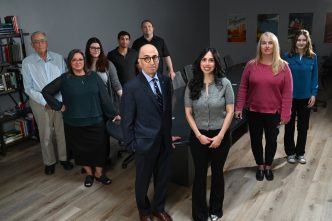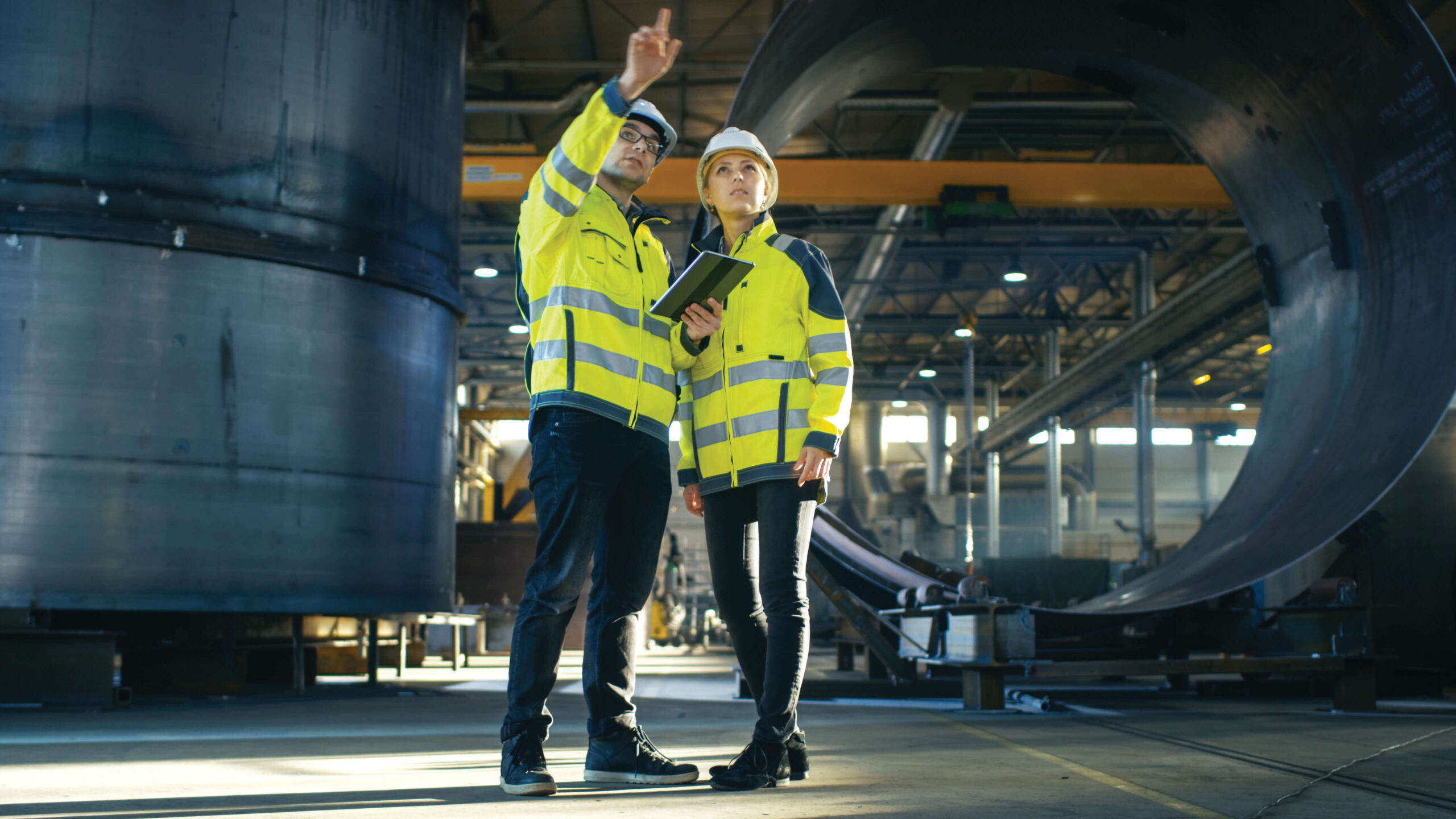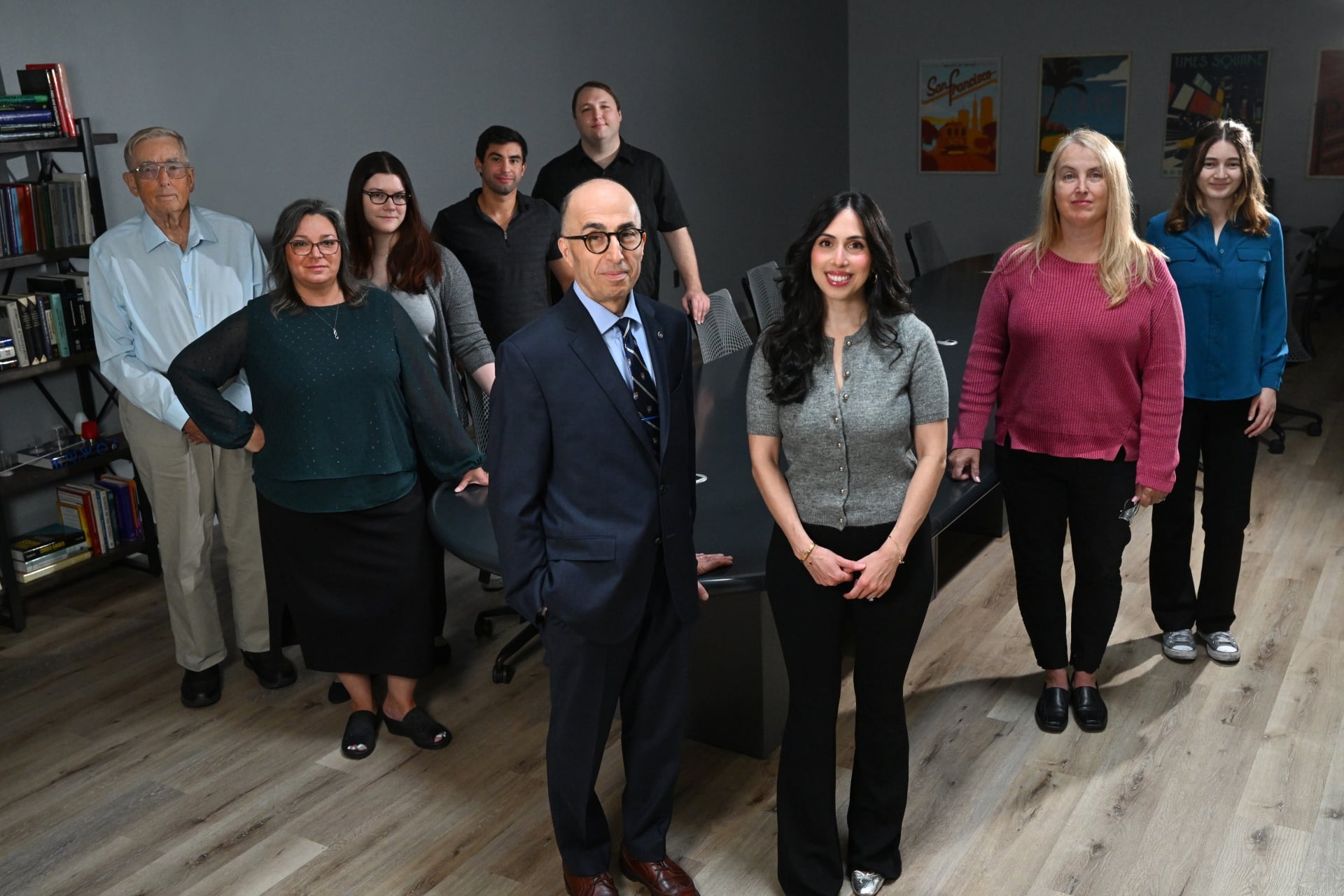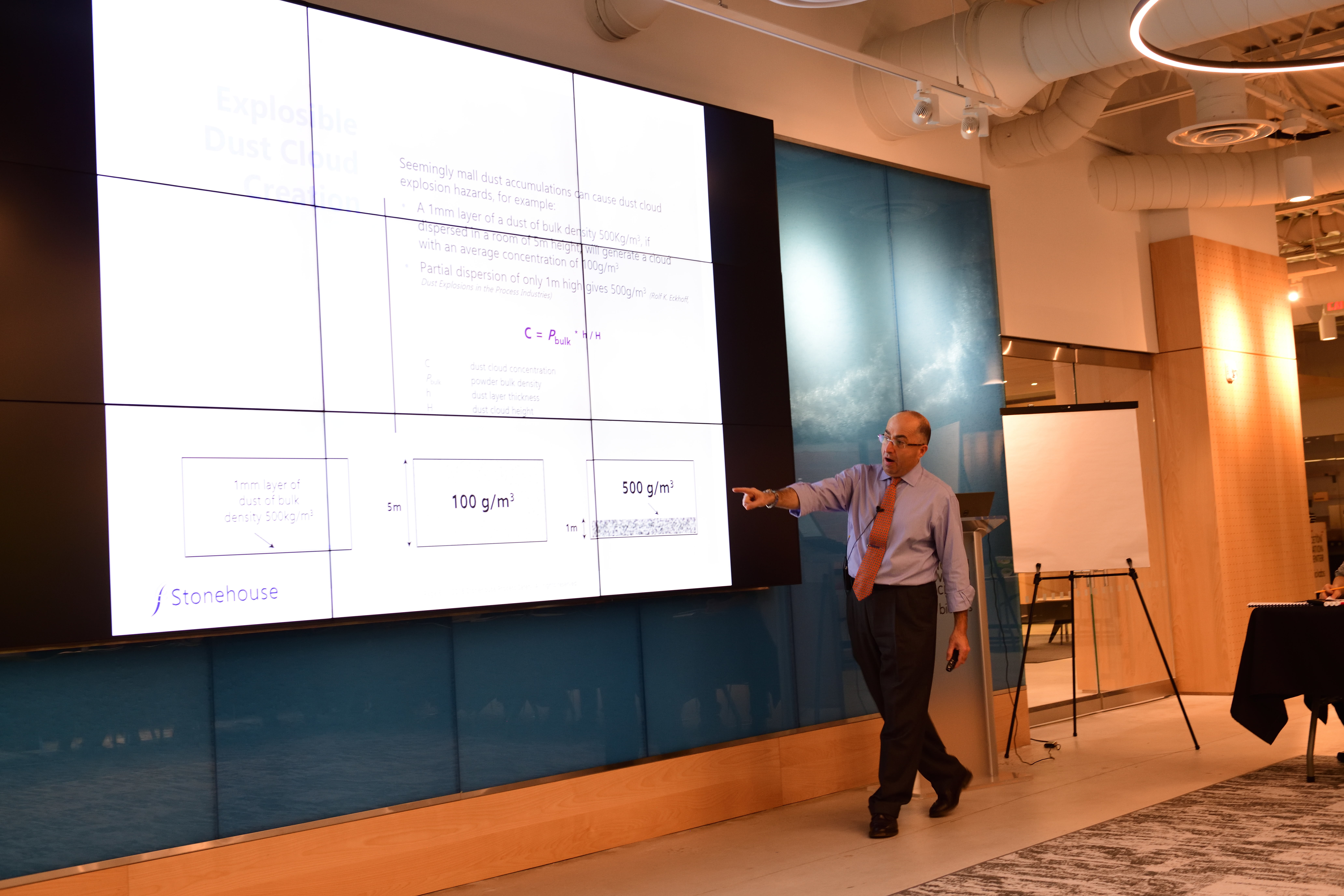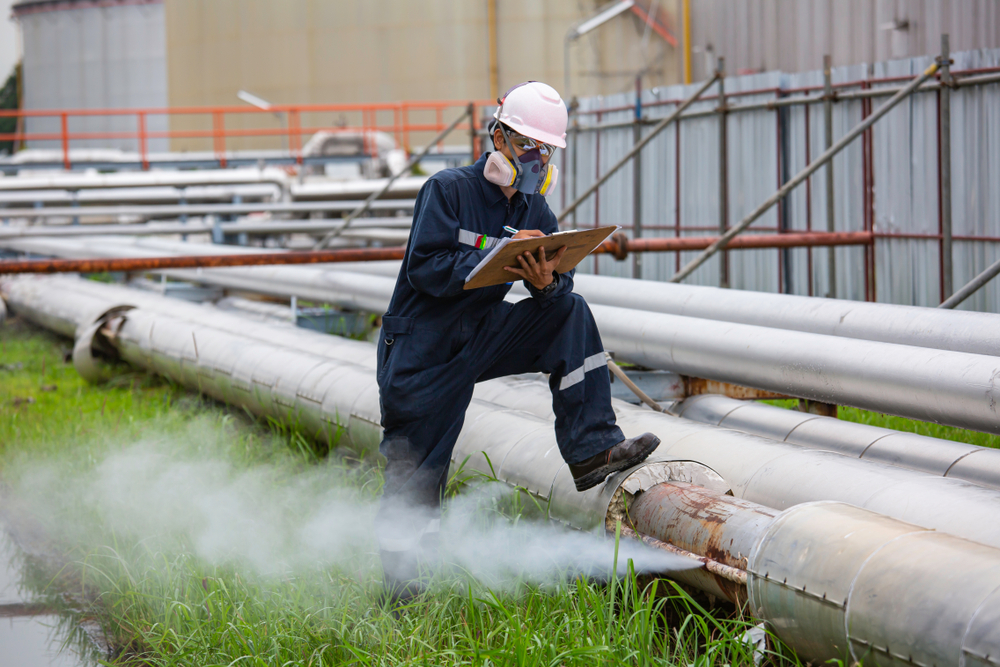Search
An Interview with Stonehouse Founding CEO, Dr. Vahid Ebadat
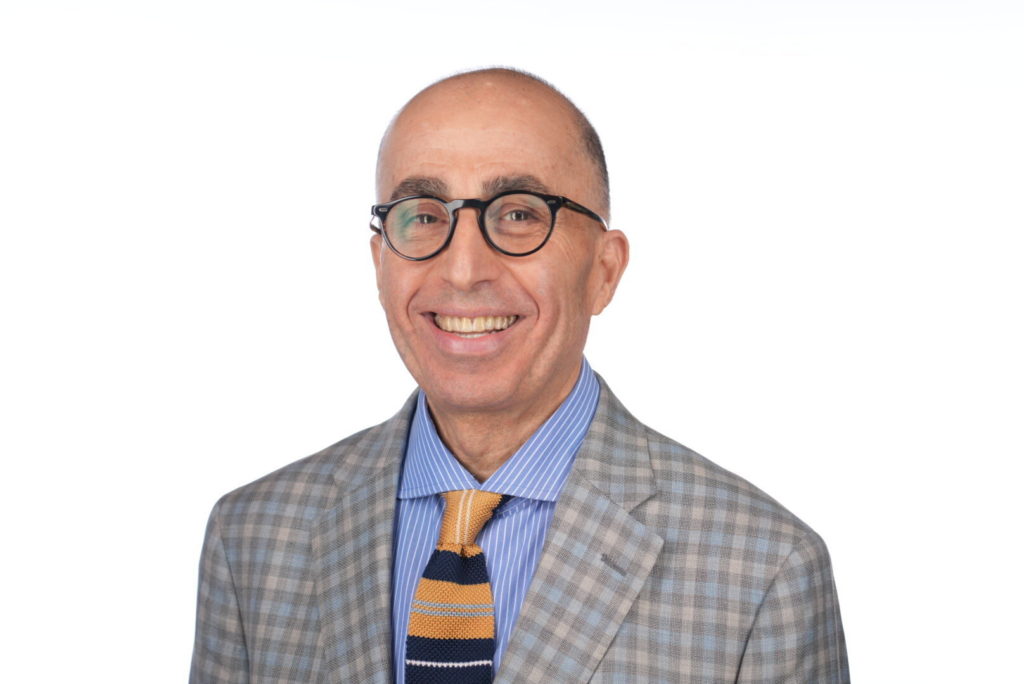
In this month’s special edition of Process Safety Dispatch, we are thrilled to present an exclusive Q&A session with our CEO, Dr. Vahid Ebadat, whose leadership and dedication to safety has propelled our company to the forefront of the process safety industry. From the intricate workings of our state-of-the-art, ISO/ IEC 17025:2017 Accredited process safety laboratory, to the decisions that shape our future, Vahid shares insights that illuminate the core of our mission and reveal the passion behind our operations. Dive into this engaging conversation to discover not only the professional ethos that guides our company but also the personal interests that inspire our leader to push the boundaries of process safety.
Read on to uncover the stories and strategies that make our approach to process safety uniquely effective and deeply committed to protecting lives.
- What inspired the founding of Stonehouse?
We were motivated by a strong desire to bring process safety foresight to the forefront and help companies manage their risks effectively. The founding team all have career-long backgrounds in process safety and saw a clear need for specialized expertise in explosion prevention, protection, and on process safety management. We decided to fill that gap with both consulting services and laboratory capabilities.
- What guiding principles shape the professional ethos of our company in the field of process safety?
Our professional ethos is deeply rooted in the principle of knowledge- and data-based proactive prevention rather than just reacting to events. We believe in a holistic approach that combines experience, and a practical approach with cutting-edge scientific knowledge, rigorous testing in our lab, and custom solutions tailored to each client’s needs. This ethos not only drives our operations but also ensures that we are continually pushing the limits of what’s possible in safety technology. Our commitment to integrity and excellence guides the decisions we make, aiming always to exceed the standard norms of safety and provide true peace of mind to our clients.
- Can you share how your personal interests have influenced your approach to leading the company and driving excellence in process safety?
My passion for sailing has deeply shaped my approach to leadership. Sailing requires a deep understanding of dynamic environments, accurate decision-making, and a proactive approach to safety and risk management—much like process safety. This hobby has taught me the importance of staying agile and adaptive, qualities that I bring to our company’s leadership. It encourages me to think beyond traditional solutions, inspiring our team to explore new ideas that push the boundaries of what is achievable in explosion prevention and safety.
- Can you describe a recent challenging project and how our team handled it?
One of our most recent challenging projects involved mitigation measures to debilitating electrostatic shocks received by operators filling flakes into Type D big bags (FIBCs) – which are meant to prevent this sort of event! Our team conducted thorough risk assessments, simulations, laboratory and on-site measurements and evaluations to identify and understand the problem. We had to break new ground with the solutions we proposed since conventional solutions were not simply effective. As someone with a life-long interest in static electricity, I found this work particularly interesting; you can expect publications on this topic in the months ahead; standards may need to be reviewed and changed.
- How does our laboratories set us apart from other process safety consulting companies?
Our state-of-the-art process safety laboratories allow us to not just predict but to empirically determine the combustibility, explosibility, flammability, thermal stability, and static electricity properties of materials. These capabilities enable us to provide data-driven recommendations and tailored solutions that many other firms cannot simply provide.
- Which industry trends are currently influencing our work in process safety?
The evolution in material processing over the last few decades has greatly influenced process safety by necessitating the development of more sophisticated safety measures, the adoption of advanced approaches for evaluation and control; and all in an environment of deeper regulatory and cultural commitment to safety. This shifting landscape requires continuous adaptation in our approach to process safety which aligns well with our own culture – commitment to excellence, and innovation, and our aim to always exceed our clients’ expectations.
- How do we ensure that our team stays at the forefront of industry knowledge and skills?
We invest in ongoing, hands-on training and professional development. This includes attending international conferences, participating in industry workshops, and conducting training sessions led by senior practitioners.
- What role does client feedback play in shaping our services?
Client feedback is vital. It helps us refine our services and better understand the evolving needs of the industry. We encourage client feedback at every opportunity and use this feedback to continually improve our consultation processes and laboratory methodologies.
- Looking ahead, what are the major growth areas for our company?
As a leader in Process Safety, you will understand that our service offering is always under review and is regularly adjusted to meet demand. We will have a number of new initiatives to announce over this year. Watch this space!
- Can you share an example of how our laboratory has directly impacted a client’s safety outcomes?
There are many examples of this to which I can personally testify. To pick out just one recent simple case, during routine screening tests, our laboratory identified a previously unrecognized self-heating hazard in a client’s material. By adjusting their process parameters (drying temperature and duration, powder thickness…) based on our findings, the client was able to manage the risk of thermal runaway. Fire and explosion hazard prevented!
Another example: a dust explosion investigation. We investigated a flash fire in a powder coating operation. Through laboratory materials testing we were able to eliminate several potential causes of the incident, leaving static electricity as the only credible ignition source. Our consulting team then advised on preventative measures to control static electricity to permit a safe restart.
- What is a common misconception about process safety that you encounter?
Many people believe that process safety is just about compliance or about fixing a particular issue, but it’s really about integrating safety as a core part of business operations to enhance both safety and productivity. Process Safety Management can provide the methodology to achieve that integration and will involve things like, Process Hazard Analyses, Emergency planning & response, employee participation, regulatory compliance, training, hot work permits and more. Of course, technical hazard identification, elimination and risk control measures are part of this; something that our team excels at.
- What advice would you give to a company just starting to focus on improving their explosion prevention measures?
Start with a comprehensive hazard assessment conducted by our practitioners, selected for knowledge of your industry, who without exception will have had extensive industrial and process safety experience. Obtain the necessary lab data to really understand your materials. Understand how process safety fits into your organization and that it is not a one-time effort but a continuous process that involves training, PHAs and DHAs, contractor safety, auditing, documented operating procedures, and more.
- How do you typically spend your day as CEO?
My day usually starts with a quick review of emails and a team huddle with my COO and key managers to set our priorities. I spend a lot of my time in discussions with not only our clients, but also with our senior staff, discussing ongoing projects and strategic initiatives. I also make it a point to walk around our facilities when I can, connecting with colleagues and staying grounded in the everyday activities that keep our company moving forward.
- What is your favorite hobby when you are not working?
When I’m not at work, I love to go sailing. It’s a perfect way to disconnect, think creatively, and enjoy the tranquility of the sea. It not only helps me relax but also provides a fresh perspective, which is often reflected in my approach to both personal and professional challenges. I’m also an avid gardener, book reader, and have taken up running over the last few years.

Get in touch
To learn more about our expertise and services in dust explosion prevention & mitigation, call us at +1 609 455 0001 or email us at [email protected] today.
We also offer tailored virtual and in-company process safety training programs on Dust Explosions, Static Electricity and HAC (Hazardous Area Classification) and more. Find further information here.
